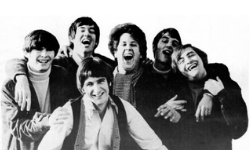What happens when Congress is unable – for almost 50 years – to figure out how to protect recorded music? Specifically, music recorded before 1972? Messy litigation involving the Turtles is what happens. First, some background.
Almost 50 years ago, Congress passed the Sound Recording Amendment to the 1909 Copyright Act, which provided copyright protection to sound recordings created on or after February 15, 1972. However, there was no Federal law requiring that royalties be paid for publicly performing works created before that date until Congress unanimously passed the Music Modernization Act in 2018. This law included a provision that required digital music providers such as SiriusXM to pay royalties to artists for such pre-1972 works. Between 1971 and 2018, copyright issues for pre-1972 works were litigated under state statutes and common law. This practice followed the 1973 U.S. Supreme Court case of Goldstein v. California, which upheld the validity of California’s anti-piracy statute.
Enter the turtles. Or actually, the band named “The Turtles”, known for songs including “Happy Together”, “Elenore”, and “It Ain’t Me Babe” (Bob Dylan wrote it for The Turtles’ debut album – there’s your music trivia for the day). The rights to their songs are owned by the two founding members, known as Flo and Eddie. In 2013, Flo and Eddie filed a class action suit in California against SiriusXM, claiming that they were owed royalties, and that the Copyright Royalty Board lacked the authority to pay the very modest royalties for pre-1972 sound recordings. The case settled for $99 million – an impressive sum.
What was left unsettled was whether owners of pre-1972 sound recordings could control public performance rights in those works. The settlement left open the issue of additional royalty payments for past and future broadcasts by SiriusXM, pending appeals before the Second, Ninth, and Eleventh Circuits. In 2016 and 2017, the Second and Eleventh Circuits, respectively, found that New York and Florida common law had never recognized public performance rights for pre-1972 sound recordings, and therefore, those cases were dismissed.
In something of a last stand for Flo and Eddie, the case came before the Ninth Circuit. Judge Kenneth Lee, writing with considerable flourish for the majority, found that California, like Florida and New York, did not recognize public performance rights for pre-1972 sound recordings. In reaching this conclusion, the court looked back almost 150 years to common law from the mid-1800s, at the origin of California’s copyright statute. The court reasoned that the term “exclusive ownership” used in the statute would have lacked the implied right of public performance. It pointed to a 1908 U.S. Supreme Court case denying copyright protection to sound recordings, and to the repeated but fruitless efforts of performers and publishers to include protections for sound recordings, until finally achieving prospective rights under the Sound Recording Amendment in 1971. This left open the question of payment for past performance under the California statute.
The court stated, “We thus need to examine the understanding of the phrase “exclusive ownership” under the common law in 1872.” Sparing you, gentle reader, from the court’s historical travels, suffice it to say that the court used the context of the 1872 statute to conclude that there was no public performance right implicated.
Interestingly, the Ninth Circuit pointed to only one state – Pennsylvania – as protecting public performance rights under its common law, in the 1937 Pennsylvania Supreme Court case of Waring v. WDAS Broadcasting Station. Unfortunately for Eddie and Flo, Judge Lee characterized the decision as a “frolic” deviating from other states’ jurisprudence.
As a practical matter, this case will have increasingly less impact, as the Music Modernization Act future performances of pre-1972 sound recordings. But Flo and Eddie surely can’t be “Happy Together” about the decision.
Note from Josh Waterston (the author of this article): This will be my last article as I am leaving LWH at the end of this month. I have been exceptionally fortunate to get to know the attorneys at LWH, and I look forward to remaining in touch with them. This is a group of fine lawyers who also happen to be fine people. I wish them and you all the best in the future.
— Joshua D. Waterston, Esq.


